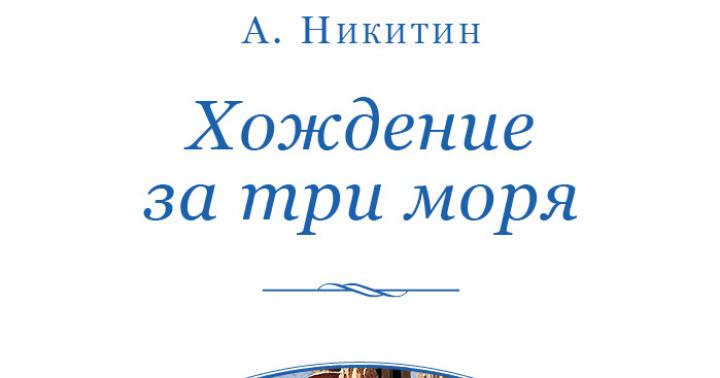1. What is the text style here (prove your opinion) 2. Type of text (prove your opinion)
I studied well, but I didn’t do well with French - because of the pronunciation. I easily remembered the words, but the pronunciation completely betrayed my Angarsk origin, and Lidia Mikhailovna, the French teacher, winced helplessly and closed her eyes.
“No, I’ll have to study with you separately,” she said.
Thus began the painful days for me. I was covered in sweat, blushed and out of breath, and Lydia Mikhailovna without a break made me calluse my poor tongue. Gradually, I began to pronounce French words quite passably, and they no longer broke off at my feet like heavy cobblestones, but, ringing, tried to fly somewhere.
Probably, it was already possible to stop these classes at home, but I did not dare to tell Lidia Mikhailovna about this, and she apparently did not consider our program completed. And I continued to pull my French strap. However, is it a strap? Somehow, involuntarily and imperceptibly, I felt a taste for language and in my free moments, without any coercion, I climbed into the dictionary, looking into the distant texts of the textbook. Punishment turned into pleasure.
- 1. artistic style, because this is a fragment of fiction.
2. type of narrative, because there is a plot.
Literary dictation based on the story by V.G. Rasputin's "French Lessons" consists of 20 question-sentences that students need to complete.
View document contents
“Literary dictation based on the story by V.G. Rasputin "French Lessons"
Literary dictation based on the story by V.G. Rasputin
"French lessons"
Genre of the work by V.G. Rasputina - ... story.
The story is told from the perspective of... the main character.
The events of the work take place in... 1948.
The hero of the story studies in... 5th grade.
The boy... is 11 years old.
In his native village they called him... a literate, brainy guy.
The boy studied and lived alone in... the regional center.
In French, the most difficult thing for the main character was... to pronounce words.
The French teacher's name was... Lidia Mikhailovna.
The main character was drawn into the game for money by... Fedka.
The narrator played “chika” in order to... buy milk every day.
A jar of milk cost... 1 ruble.
“...a fussy boy with blinking eyes, who loved to raise his hand in class...” - this is... Tishkin.
Vadik studied... in the 7th grade.
Vadik's friend's nickname is... Bird.
The hero of the story was severely beaten because... he began to play better than everyone else and won.
The boy guessed that the package was not from his mother, because it contained... pasta.
The teacher began to play “measures” with the boy in order to... help the capable but hungry student.
The teacher left... for Kuban.
The second parcel contained... pasta and apples.
pronunciation. I easily remembered the words, but the pronunciation completely betrayed my Angarsk origin, and Lidia Mikhailovna, the French teacher, winced helplessly and closed her eyes.
“No, I’ll have to study with you separately,” she said.
1,Prove that this is text2. Subject of the text
3. main idea of the text
4.Text style (prove your opinion)
5. type of speech (prove your opinion)
6. Explain how you understand the expression in the forests was solemn
7. Write out from the text 2-3 examples of words formed in the following ways:
Prefix
suffixal
It was difficult to stay at home on the first winter day. We went to the forest lakes.
It was solemn, light and quiet in the forests. We wandered through the forests until dusk, going around familiar places.
There was always a lot of duckweed floating on the small lake. Now the water in the lake was very black and transparent - all the duckweed had sank to the bottom by winter.
A glass strip of ice has grown along the coast. The ice was so transparent that even close up it was difficult to notice. I saw a flock of rafts in the water near the shore and threw a small stone at them. The stone fell on the ice, rang, the rafts, flashing with scales, darted into the depths, and a white grainy trace of the impact remained on the ice. That’s the only reason we guessed that a layer of ice had already formed near the shore. We broke off individual pieces of ice with our hands. They crunched and left a mixed smell of snow and lingonberries on your fingers.
Here and there in the clearings birds flew and squealed pitifully. The sky overhead was very light, white, and towards the horizon it thickened, and its color resembled lead. Slow snow clouds were coming from there.
The forests became increasingly gloomy, quieter, and finally thick snow began to fall.
Winter has begun to rule over the earth...
As the sun came out, the frost melted, heavy silvery drops, like earrings suspended from pine needles, fell down and hit the leaves of the bushes, tearing off drops of dew from them too. And then a little rain seemed to rustle in the bushes.
In my opinion, the taiga is beautiful and majestic at all times of the year. But in such a clear autumn season, probably especially. The mighty trees surrounding you on all sides stand thoughtfully and silently. High in the treetops, invisible birds squeak quietly. Suddenly a loud knock is heard. It’s as if the woodpecker is sending out a telegram to someone in Morse code about the fact that, apparently, cold weather will soon come and snowstorms will sweep through, covering the taiga in snow.
1.Title the text
2.Prove that this is text
3.Text topic
4. The main idea of the text
5.Text style (prove your opinion)
6.Type of Text (prove your opinion)
7. -
8. -
9. Extract from the text: epithets, personification, comparison
10. Determine the lexical meaning of the word: Morse code
One day on a day off, Syomka went again to the Talitsky church. He sat down on the slope and began to look at her carefully. Silence and peace all around. Quiet in the village. And the white beauty stands in the greenery - she has stood for so many years! - is silent. And many, many times she saw the sun rise and set, the rains rinsed her, the snow blew in... But there she stood. Who's happy? What was that unknown master thinking about when he left behind this bright stone fairy tale? Like a man sang a song, and he sang it well. This is what the soul asked for. Dear, dear man!
please help me with the assignments)))) When composing a bouquet of flowers, remember that (not) always and (not) all flowers get along with each other. From (because of) (in)correctchoosing flowers for a bouquet... real tragedies are played out. Here (n..) how many ex..measures. The rose which everyone considers to be the flower of love and peace turns out to be (not) so necessary and peaceful, it completely..but (cannot) tolerate, for example, mignonette. As soon as they end up in the same vase, the rose kills the mignonette with its aroma. But the other (does not) remain in debt... she releases a deadly poison into the water which soon destroys the “queen of flowers”. (Does not) hate the rose as well as the carnation. But here it (does not) come to “murder”. Finding themselves in the same bouquet... both of them simply (simply) stop smelling. This white (snowy) harbinger of spring is not as meek as it seems. The list of his mortal enemies is (not) small lily of the valley.. (not) hates all spring.. flowers. As soon as any of them comes close to the lily of the valley... he kills the “competitor”. The narcissistic narcissist does exactly the same thing... with the modest (not) forgetful one. (Don’t) put them in one bouquet of daffodils... that (hour) will destroy her. (From the “Schoolchildren’s Calendar.”)1. Title the text.2. Prove that this is text.3. Topic of the text4. Main idea of the text5. Text style (prove your point).6. Type of text (prove your opinion).7. Make a plan for the text.8. Add missing punctuation marks. Insert the missing letters where necessary. 9. Group words with different types of spelling. Formulate a rule.
Rasputin wrote the story “French Lessons” in 1973. The work was first published in the newspaper “Soviet Youth”. The story is written in the tradition of village prose - a direction that developed in Russian literature of that period. The work is considered autobiographical, telling about an episode from the life of Valentin Rasputin himself.
Main characters
Main character, narrator- an eleven-year-old boy from a poor family; The story is narrated on his behalf.
Lidia Mikhailovna- a young French teacher, “about twenty-five years old.”
Vadik- a seventh-grader, “bossed” among the children playing “chicka”.
“It’s strange: why do we, just like before our parents, always feel guilty before our teachers? And not for what happened at school, no, but for what happened to us after.”
The main character went to 5th grade in 1948. In their village there was only Primary School, therefore, in order to study further, he had to move to the regional center - fifty kilometers from home. His mother agreed that he would “lodge” with a friend.
The main character's family lived very poorly and were constantly hungry. In addition to the narrator, the mother had two younger children, they lived without a father. The main character studied well, “in the village he was recognized as literate.”
At the new school, the boy also studied well, the only difficulties he had were with the French language - he could not pronounce it. Listening to how the student distorted the language, the French teacher, Lidia Mikhailovna, “wrinkled helplessly and closed her eyes.”
In a new place main character He lost a lot of weight - the food supplied by his mother was not enough, so he was constantly hungry.
One day, the son of a friend took the main character to watch other guys play chica for money. Having learned the rules of the game, the narrator decided to try it too. Periodically, his mother gave him five rubles for milk - the boy needed to drink it “for anemia.” Having exchanged the money he received, he went to play. Soon the boy got the hang of it and, winning a ruble every day, immediately left. With this money he bought milk. One day, local ringleader Vadik noticed that the main character was “leaving games too quickly” and provoked a fight. The narrator was severely beaten.
The next day the first lesson was French. Seeing the boy’s broken face, the teacher immediately asked what happened. One of his classmates, who knew about what had happened, shouted out that he was beaten because he was gambling for money. The teacher told the main character to stay after class. The boy was afraid that he would be “dragged” to the director, but Lidia Mikhailovna only asked about what he was doing with the money he won. The woman was surprised that the boy limited himself to a ruble and spent it on milk.
The main character stopped playing. At this time, his mother sent almost no food, and he “was hungry all the time.” Unable to bear it, he returned to the game again. The boy tried to win little by little. However, when he tried to leave on the fourth day, having won a ruble, he was beaten again.
Seeing the boy beaten again the next day, Lidia Mikhailovna assigned him additional classes.
The teacher with all diligence forced the boy to work on his pronunciation. Soon they began studying at her home. The teacher felt sorry for the boy; she constantly offered him dinner, but every time he refused in fear, jumped up and quickly left.
One day, the main character was delivered a package directly to school. At first he thought that her mother had given it to her. However, when I saw that there was pasta, sugar and hematogen, I realized that the package was from the teacher - there was nowhere to get such products in their village. The boy immediately went to Lydia Mikhailovna’s house. Despite the teacher's persuasion, he refused to take the food for himself.
French classes continued. Soon the main character began to pronounce French words quite well and felt more free when visiting a woman. Gradually, the boy “felt a taste for language” - “punishment turned into pleasure.”
Once a teacher said that as a child she also played for money, but in a different way. Having asked the boy “not to betray” her to the director, the woman showed how to play “measures”. After playing “for fun” a little, Lidia Mikhailovna suggested playing “for real”. Having got the hang of it, the boy very soon began to win. They played often. Soon the boy had money again, and he was already buying milk and cream. Of course, he was embarrassed to take money from the teacher, but he reassured himself that it was an honest win.
“If only we knew how it would all end...”
One day, in the midst of the game, the director who lived nearby came to see Lydia Mikhailovna. Seeing that she was playing with the student for money, he was very indignant.
“Three days later Lydia Mikhailovna left.” The day before, she met the main character and said that she was leaving home, to Kuban, and no one would touch him - it was her fault.
“And I never saw her again.” Only in the middle of winter, after the January holidays, did he receive a parcel with pasta and three red apples, which he had previously only seen in pictures.
Conclusion
In the story “French Lessons,” Valentin Rasputin reveals the theme of the relationship between student and teacher. Lidia Mikhailovna is portrayed by the writer as a truly talented teacher and mentor. Seeing that the boy does not want to accept help just like that, she finds a way to help him through a game for money. By doing this, the woman literally saves the boy from hunger without hurting his pride.
Story test
Test your memorization summary test:
Retelling rating
Average rating: 4.7. Total ratings received: 4951.
I studied well, but I was not doing well with French because of my pronunciation. I remembered the words easily, but the pronunciation clearly betrayed my Angarsk origin. teacher French Lidia Mikhailovna winced helplessly and closed her eyes.
“No, I’ll have to study with you separately,” she said.
Thus began the painful days for me. I was covered in sweat, blushed and out of breath, and Lidia Mikhailovna without a break made me calluse my poor tongue.
Gradually, I began to pronounce words quite tolerably, and they no longer fell off like heavy cobblestones at my feet, but rang and tried to fly somewhere.
Involuntarily and imperceptibly, I felt a taste for language and in free moments, without any coercion, I looked into the dictionary and looked into the distant texts of the textbook. Punishment turned into pleasure.
(V. Rasputin) (110 words)


